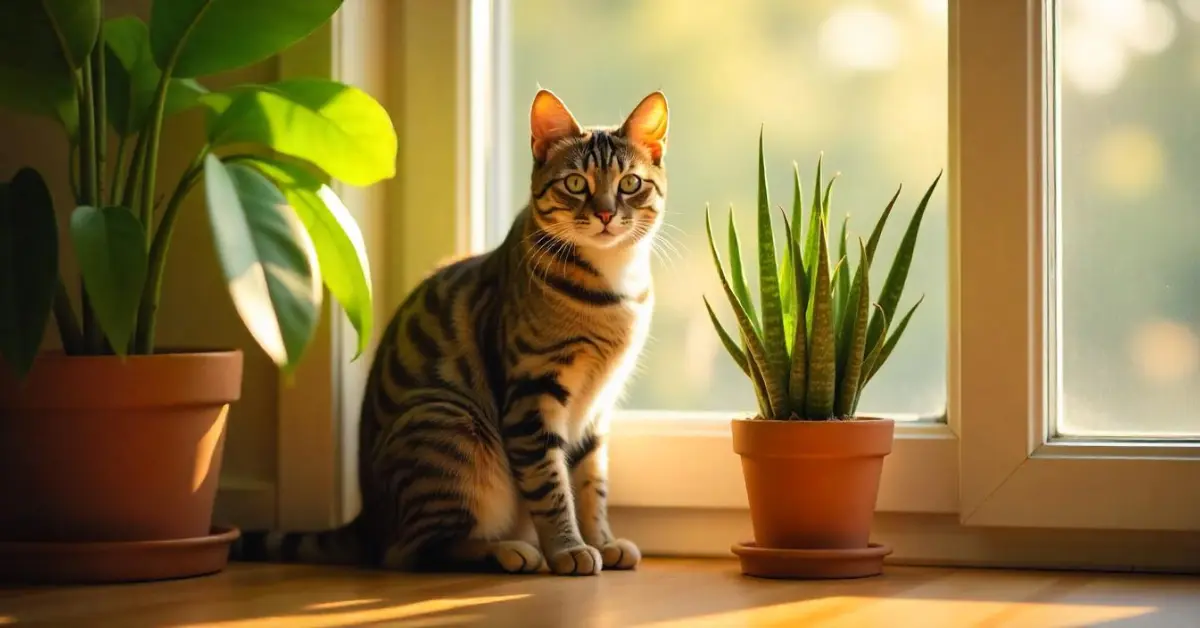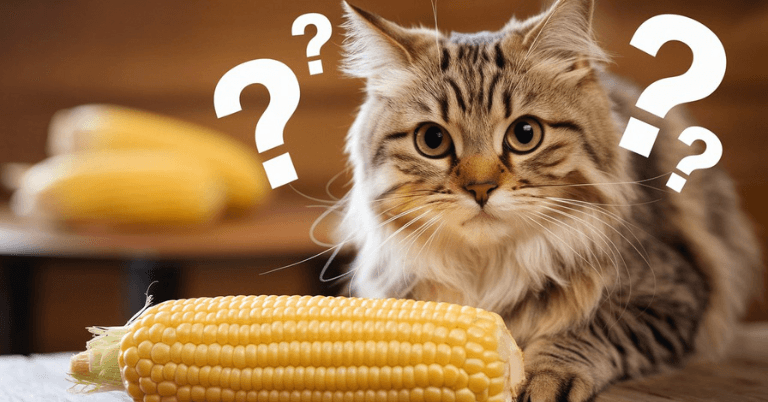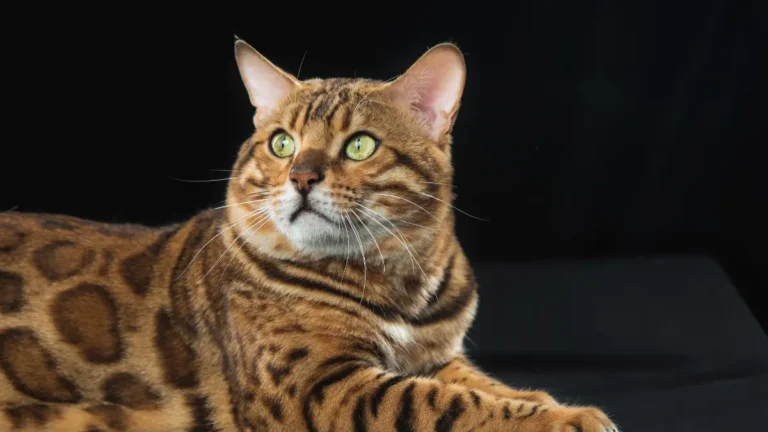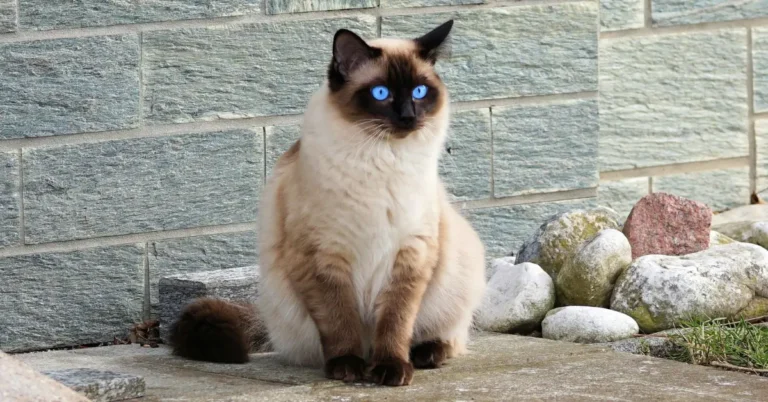Snake plants, known for their striking leaves and air-purifying benefits, are a popular choice for home decor. But for pet owners, the question arises: are snake plants toxic to cats? Understanding the potential risks snake plants pose to cats, dogs, and other pets can help you keep your home both beautiful and safe. Here’s everything you need to know about snake plants, their toxicity, and how to make informed plant choices if you have pets.
Table of Contents
Are Snake Plants Toxic to Cats?
Yes, snake plants are indeed toxic to cats. The primary toxic compound in snake plants, including varieties like the Sansevieria trifasciata (commonly called Mother-in-Law’s Tongue), is saponin. This compound can cause discomfort and even lead to poisoning if ingested by cats. The American Society for the Prevention of Cruelty to Animals (ASPCA) specifically lists snake plant toxic to cats on its list of plants dangerous to animals.
But what happens if a cat licks or chews on a snake plant? Even a small amount can lead to symptoms, which may vary depending on how much was ingested. This is one of the many reasons why snake plant safe cats is a bit of a myth cats and snake plants do not mix well.
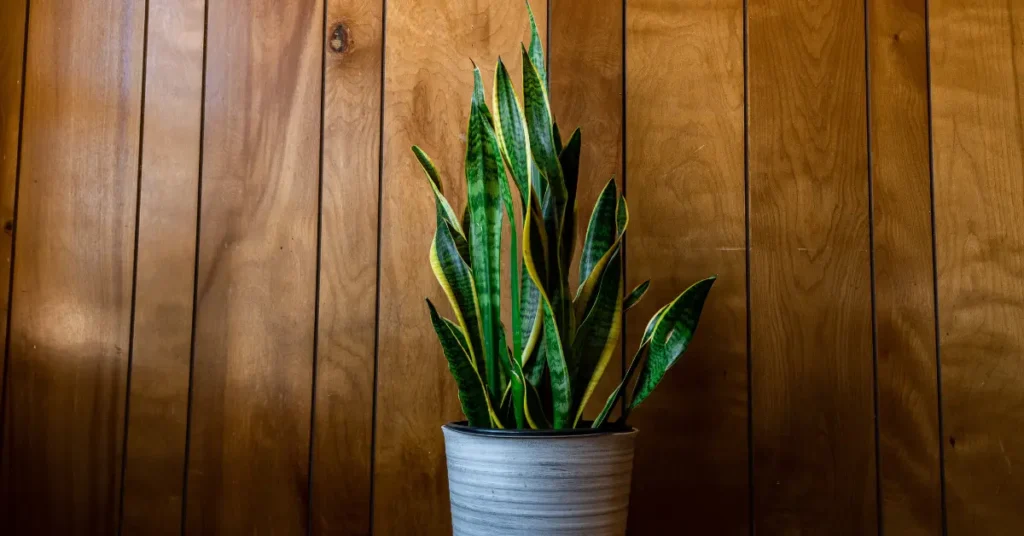
How Toxic Are Snake Plants to Cats and Other Pets?
The level of toxicity in snake plants is classified as mild to moderate. This means that while a snake plant won’t likely be fatal to a cat, it can cause significant discomfort and illness. Is sansevieria toxic to cats in the same way it affects other animals? Absolutely. Saponins are toxic not only to cats but also to dogs and some smaller animals.
For a cat, ingesting parts of a snake plant may lead to symptoms like:
- Drooling
- Nausea
- Vomiting
- Diarrhea
- Loss of appetite
If you notice your cat displaying any of these symptoms and suspect they’ve nibbled on a snake plant, it’s best to monitor them closely and, if symptoms persist, consult a vet.
Is Snake Plant Toxic to Dogs as Well?
Yes, just as snake plants are toxic to cats, they are also toxic to dogs. For a pet owner with both cats and dogs, are snake plants toxic to cats and dogs becomes an important consideration. Just like cats, dogs can experience drooling, vomiting, nausea, and lethargy if they consume parts of a snake plant.
While toxicity levels can vary depending on the amount ingested, dog owners should also take precautions to keep their pets away from this plant. Is snake plant safe cats and dogs might be the question, but the answer remains consistent: no, it is not safe for either.
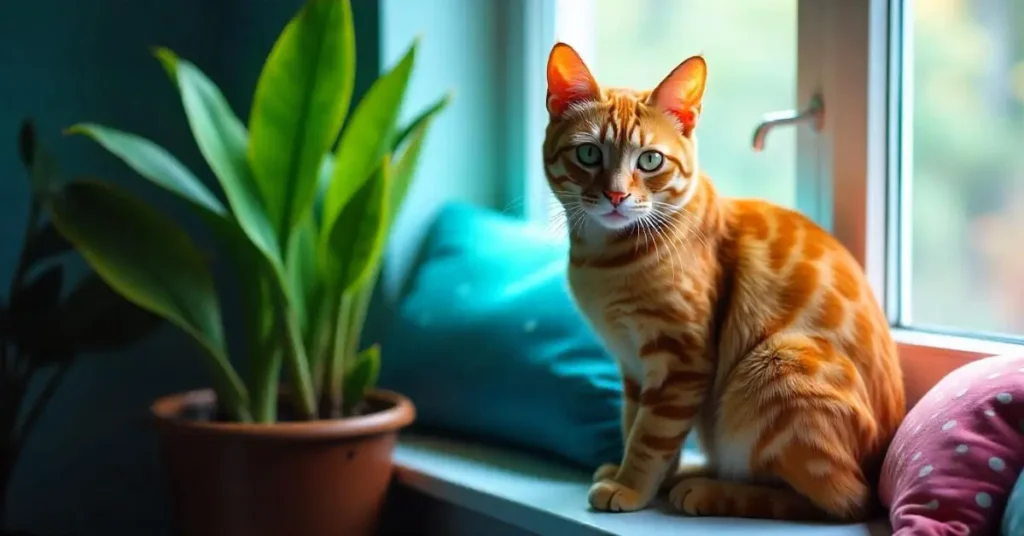
Why Are Cats and Other Pets Attracted to Snake Plants?
Cats are naturally curious, and many will sample plants out of boredom or curiosity. Some cats are attracted to snake plants due to their firm leaves and textures, which can resemble grass. Even if the plant has a mild odor that is unappealing to cats, curiosity often wins, and they may still chew on it. But what happens if a cat licks a snake plant? Even a small lick can lead to gastrointestinal symptoms due to the toxins in the plant.
Are Snake Plants Toxic to Humans?
For humans, the toxicity level of snake plants is relatively low. While not dangerous to touch, it can cause stomach upset or vomiting if ingested in large quantities, especially for children. However, the level of discomfort humans experience is usually much milder compared to pets, which are more sensitive to these compounds. Are snake plants toxic to cats remains a greater concern, but it’s always wise to prevent small children from nibbling on any houseplant.
Other Toxic Houseplants to Watch Out For
If snake plants are on the list of plants to avoid, several others also pose a risk to pets, especially cats. Here’s a brief look at some common houseplants that can cause similar concerns:
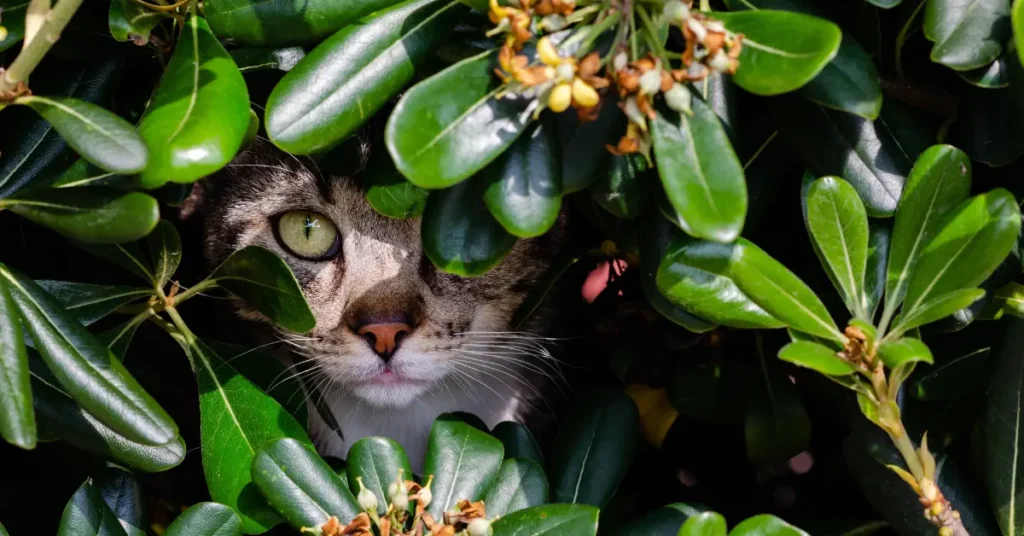
- ZZ Plants – Often seen in low-light areas, ZZ plants are also toxic to cats and dogs.
- Pothos – Another popular plant, pothos contains insoluble calcium oxalates that can lead to oral irritation and vomiting.
- Monstera – With its beautiful cut leaves, monstera is tempting but also contains compounds harmful to cats and dogs.
- Spider Plants – While often considered safer than the above, spider plants can still cause mild stomach upset if eaten by cats.
- Tulips – These flowers are toxic to cats as well, containing compounds that may cause gastrointestinal distress if ingested. For more on tulip toxicity, see this article: Are Tulips Toxic to Cats?
Each of these plants, like the snake plant toxic to cats, should be placed carefully if you have pets.
Are There Cat Safe Plants for Pet-Friendly Homes?
For those who love both plants and pets, choosing cat safe plants can be a great solution. Some non-toxic plants for cats include:
- Spider Plants (mildly irritating but generally safe)
- Boston Ferns – A lovely green option that’s also safe.
- Calathea – Known for their vibrant leaves, they are safe for cats.
- Cat Grass – Encourages healthy chewing and is safe for all pets.
Ways to Keep Your Cat Away from Snake Plants
If you still prefer to keep a snake plant, there are ways to protect your pet. Here are a few tips:
- Place Plants Out of Reach – Position the plant on high shelves or use hanging planters.
- Use Citrus-Based Deterrents – Cats dislike citrus smells, so spraying diluted lemon or orange juice near the plant can help.
- Introduce Pet-Safe Chewables – Offer cat grass or catnip to reduce the temptation for your cat to nibble on houseplants.
While these strategies can help, remember that are snake plants toxic to cats will always have the same answer: yes, so any proximity to the plant remains a risk.
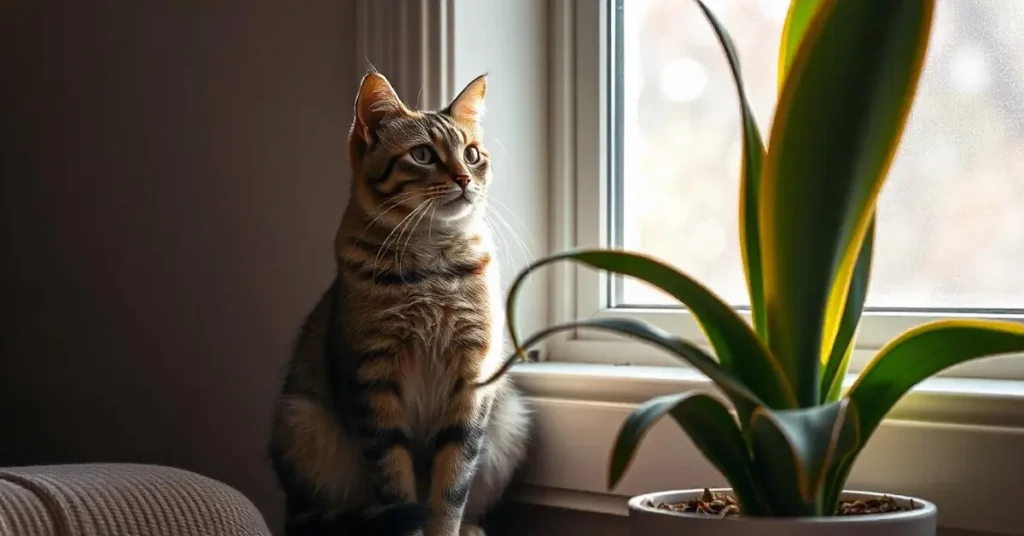
Common Questions About Snake Plant and Pet Safety
Here are some questions that pet owners commonly ask about snake plants and pets:
What Happens If a Cat Eats a Snake Plant?
If a cat ingests snake plant leaves, they may experience vomiting, drooling, diarrhea, or other gastrointestinal symptoms. The severity depends on the amount consumed, but it’s generally recommended to consult a vet to determine the best course of action.
Is Mother in Law Tongue Plant Poisonous to Cats?
Yes, the Mother-in-Law’s Tongue plant, another name for the snake plant, is poisonous to cats. This plant contains saponins, which can cause irritation and symptoms like drooling, vomiting, and digestive upset in cats if ingested.
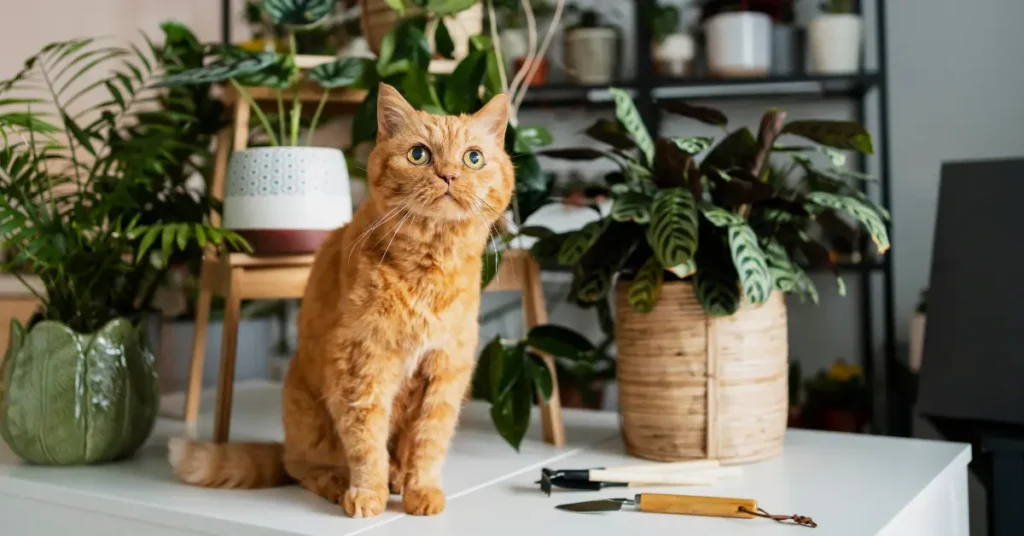
How Do I Protect My Cat from Snake Plants?
The safest approach is to keep snake plants completely out of reach. You might also use pet-safe deterrents or place the plant in a room where your cat cannot access it.
How Are Snake Plants Toxic to Pets?
The toxicity in snake plants is due to saponins, a compound that causes vomiting, nausea, and diarrhea in pets. Saponins irritate the digestive system, which is why symptoms appear soon after ingestion.
How Poisonous Are Snake Plants?
Snake plants are considered mildly to moderately poisonous to pets like cats and dogs. While not usually fatal, they can cause significant discomfort and require vet attention if symptoms persist or worsen.
Are There Safer Alternatives to Snake Plants for Pet Owners?
Absolutely. Opt for plants like spider plants, Boston ferns, and calatheas to enjoy greenery in a pet-friendly way.

